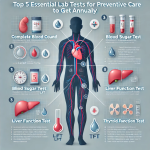
Women face numerous health issues that are unique to their gender. From reproductive health to hormonal imbalances, these issues can have a significant impact on a woman’s overall wellbeing. In this article, we will explore some of the most common female health issues and their causes.
II. Reproductive Health
Reproductive health issues are among the most prevalent female health issues. These include menstrual disorders, infertility, and sexually transmitted infections. Hormonal imbalances, such as polycystic ovary syndrome (PCOS), can also affect a woman’s reproductive health.
III. Breast Health
Breast cancer is the most common cancer among women worldwide. Regular breast examinations and mammograms can help detect breast cancer early, increasing the chances of successful treatment. Other breast health issues include breast pain, cysts, and fibroadenomas.
IV. Menopause and Hormonal Changes
Menopause is a natural process that marks the end of a woman’s reproductive years. During this time, a woman’s body undergoes significant hormonal changes, which can cause a range of symptoms, including hot flashes, mood swings, and vaginal dryness. Hormonal changes can also occur during pregnancy and breastfeeding, affecting a woman’s physical and emotional wellbeing.
V. Mental Health
Mental health issues are prevalent among women, with anxiety and depression being the most common. Women are more likely than men to experience anxiety and depression due to biological, psychological, and social factors. Hormonal changes, life transitions, and stress can also contribute to mental health issues in women.
VI. Osteoporosis
Osteoporosis is a condition that weakens bones, making them more susceptible to fractures. Women are at higher risk of developing osteoporosis due to lower bone density and hormonal changes during menopause. A healthy diet and regular exercise can help prevent osteoporosis and reduce the risk of fractures.
VII. Conclusion
Female health issues can have a significant impact on a woman’s overall wellbeing. Regular health checkups, self-examinations, and a healthy lifestyle can help prevent and manage these issues. It is essential to prioritize women’s health and raise awareness about the unique health challenges women face. By doing so, we can ensure that women have the resources and support they need to lead healthy, fulfilling lives.







